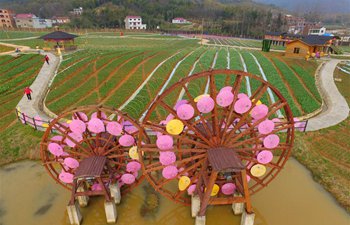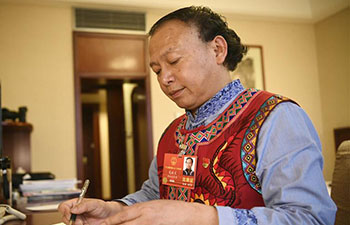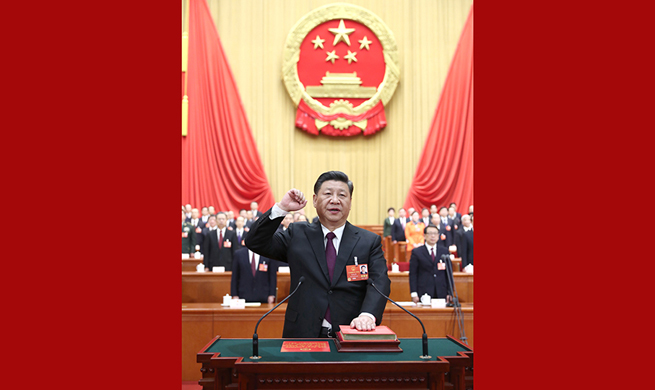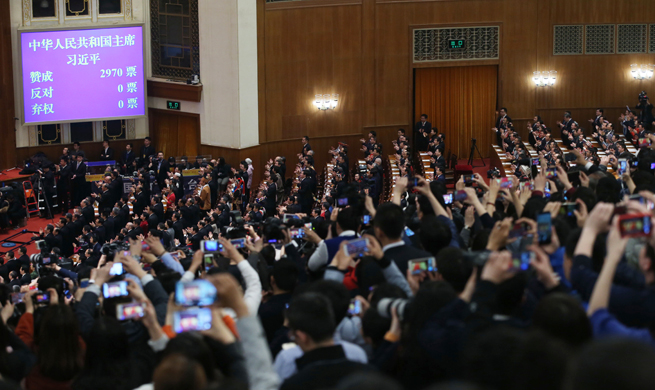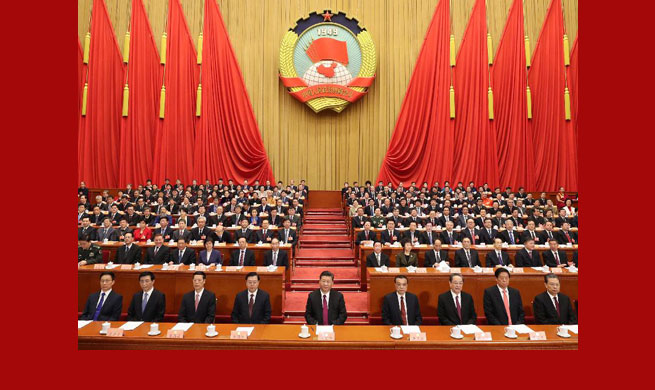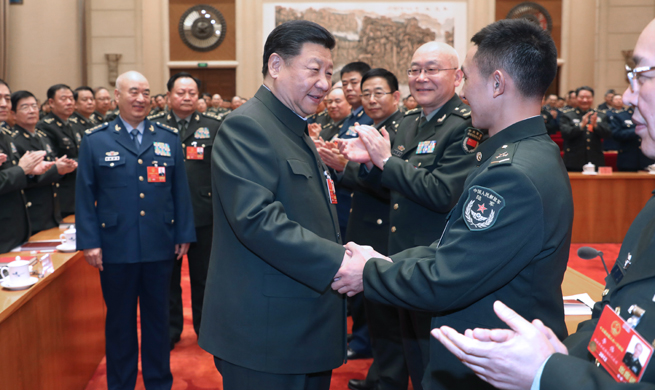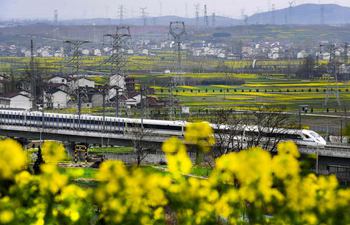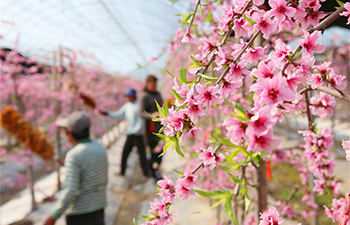BEIJING, March 17 (Xinhua) -- Face mask vendors in China had a bad time in the past winter as improving air quality dampened sales.
Anti-pollution masks sold on Alibaba's online marketplace Tmall saw noticeable decline, with the number sold to residents in Beijing dropping 52 percent year-on-year during the first half of December, according to data from Tmall.
Sales in nearby regions such as Tianjin and Shijiazhuang also dropped compared with last year.
The decline in sales of smog-related products came as some Chinese cities enjoyed the clearest winter sky in five years thanks to sustained pollution control efforts.
In the past five years, China's central government alone has invested over 60 billion yuan (9.47 billion U.S. dollars) into air pollution treatment, Li Ganjie, minister of environmental protection, said in a press briefing Saturday.
The level of pollutant PM2.5 in Beijing drop to 34 micrograms per cubic meter in January, the lowest monthly level since 2013, when China launched a national air pollution control campaign.
Across the country, the average density of PM2.5 in 338 cities was 43 micrograms per cubic meters in 2017, falling 6.5 percent year on year.
After decades of rapid development that left the country with thick, grey haze, China declared a war against pollution, with intensified efforts to crack down on polluters, and incentives for clean energy use.
"China is winning at record pace," Michael Greenstone, a professor at the University of Chicago, wrote in a recent article published in the New York Times.
According to his studies, residents in China could see their lifespans extend by 2.4 years on average if the declines in air pollution persisted.
Other major global news organizations also increased their coverage of China's pollution control success.
"Traditionally, winter is Beijing's smoggiest season, as coal burning ramps up to keep millions of residents warm. But the skies over China's capital have been almost inconceivably clear of late, thanks partly to a government crackdown on the use of the fossil fuel," the Guardian said in a recent story.
To clear up its air, China has been encouraging the use of natural gas instead of coal for winter heating, subsidizing new energy vehicles to curb emissions, and shutting down ineffective factories that produce the most pollution.
Authorities also demonstrated "zero tolerance" for polluters, launching a pollution control campaign targeting about 62,000 irregular enterprises in the Beijing-Tianjin-Hebei region and surrounding cities last year.
Thousands of officials have been held accountable for environmental damage, following inspections by central authorities.
While the efforts have paid off, experts said the country needs long-term commitment to further clear up the air.
"Smog may be on the retreat at the moment but remains a problem that cannot be ignored, not only in China but in many other countries," said Zhang Xingying, a researcher at the China Meteorological Administration.
According to Zhang, the war is far from over and China should use its experiences to help other countries fight pollution.
China has started to provide other countries with pollutant monitoring services, helping them establish their own remote sensing networks.
In the meantime, continued efforts will be made domestically to realize its vision of a "Beautiful China," where the skies are blue, the land is green, and the waters are clear, according to a government work report released earlier this month.
China will cut sulfur dioxide and nitrogen oxide emissions by 3 percent and achieve a continuous decline in PM2.5 density in key areas this year, according to the report.
The country is currently working on a three-year plan to fight for blue sky, with more ambitious goals to be set, Minister of Environmental Protection Li told the press briefing Saturday.
The target for percentage decline of PM2.5 could be set higher as the country already completed part of the tasks ahead of schedule, according to Li.




